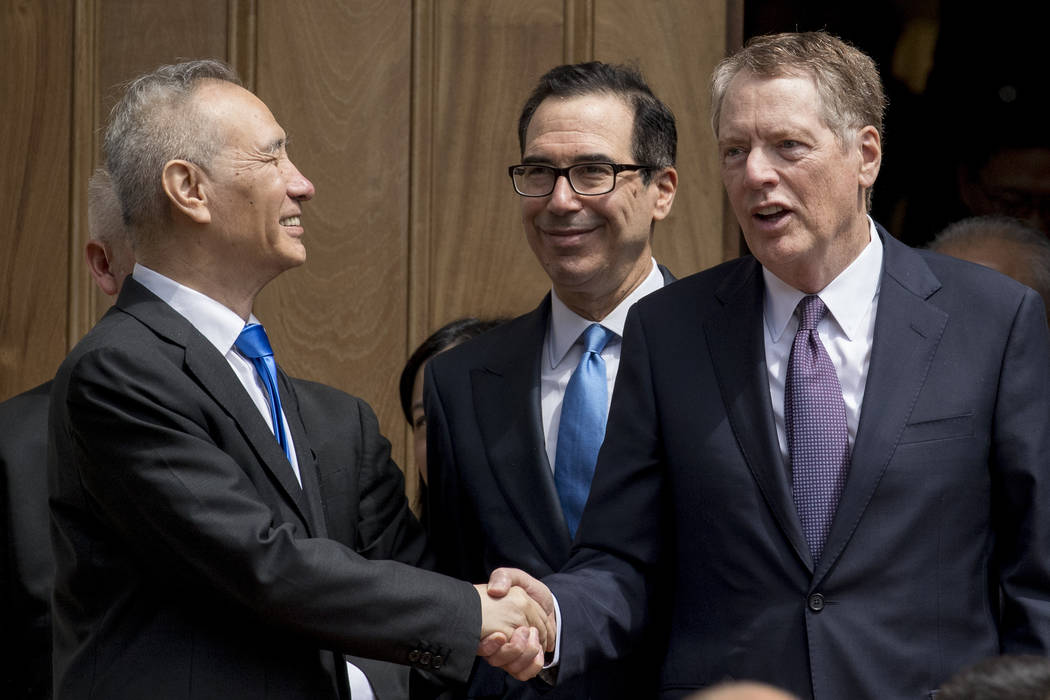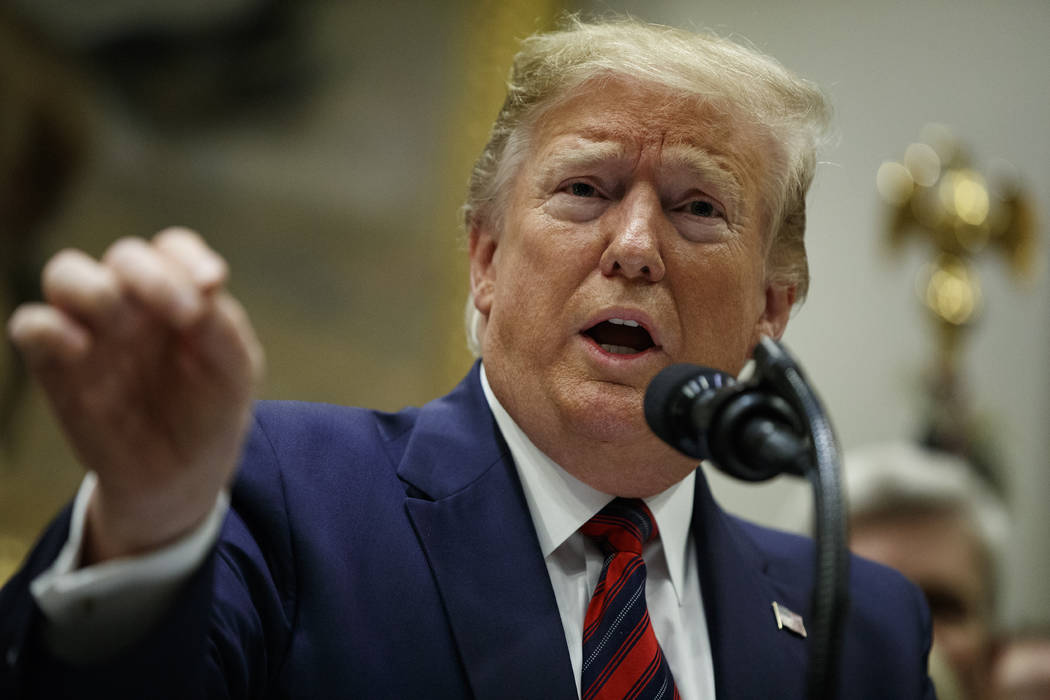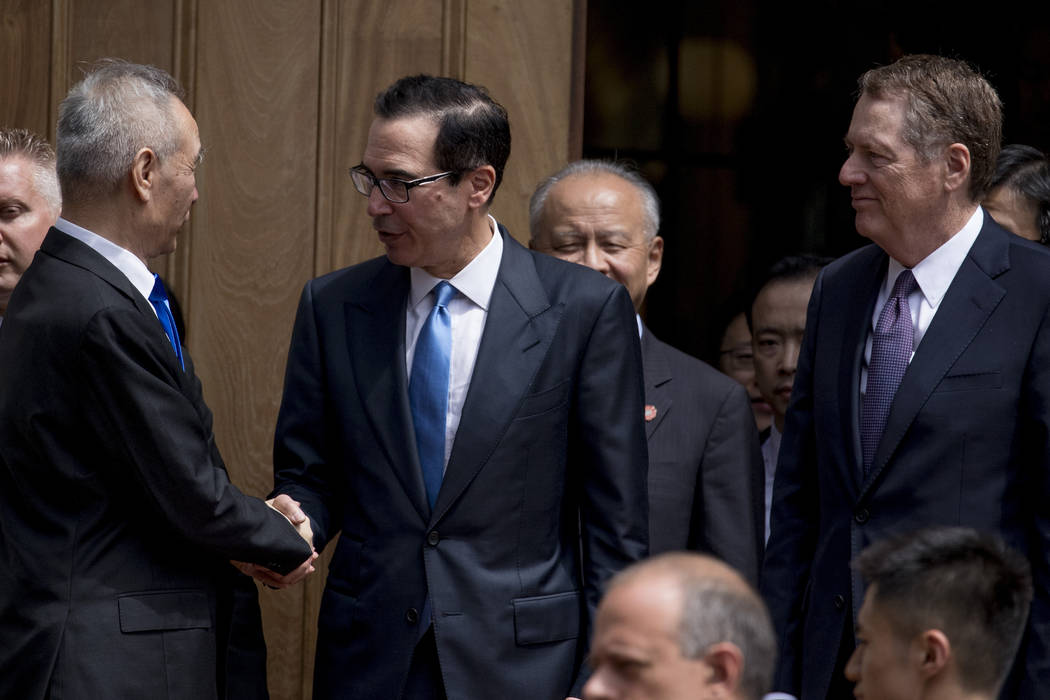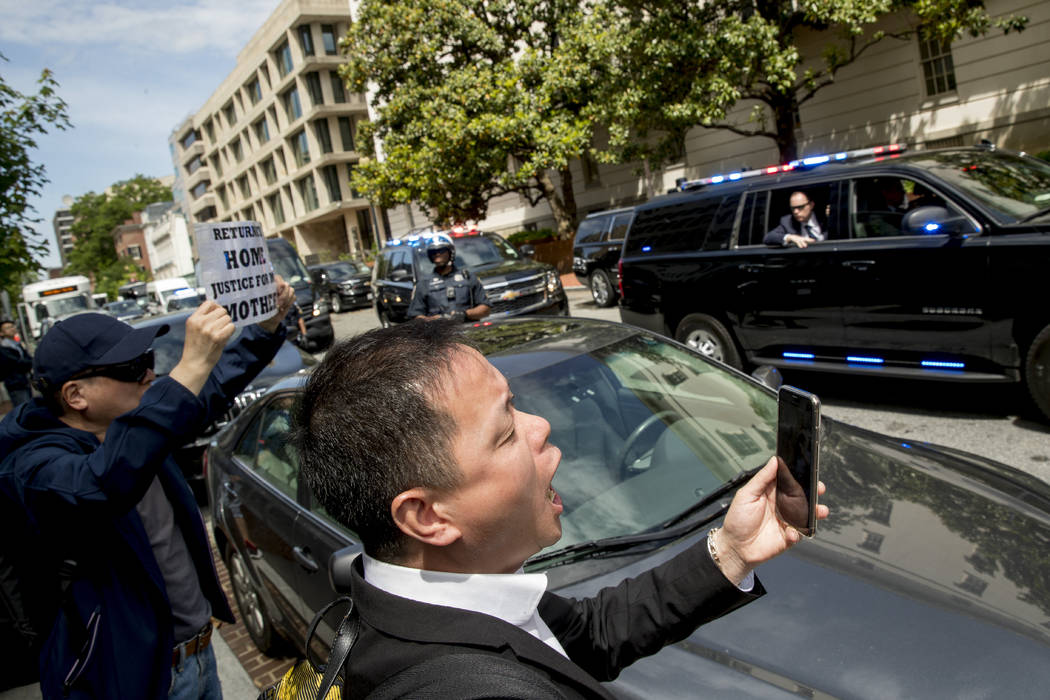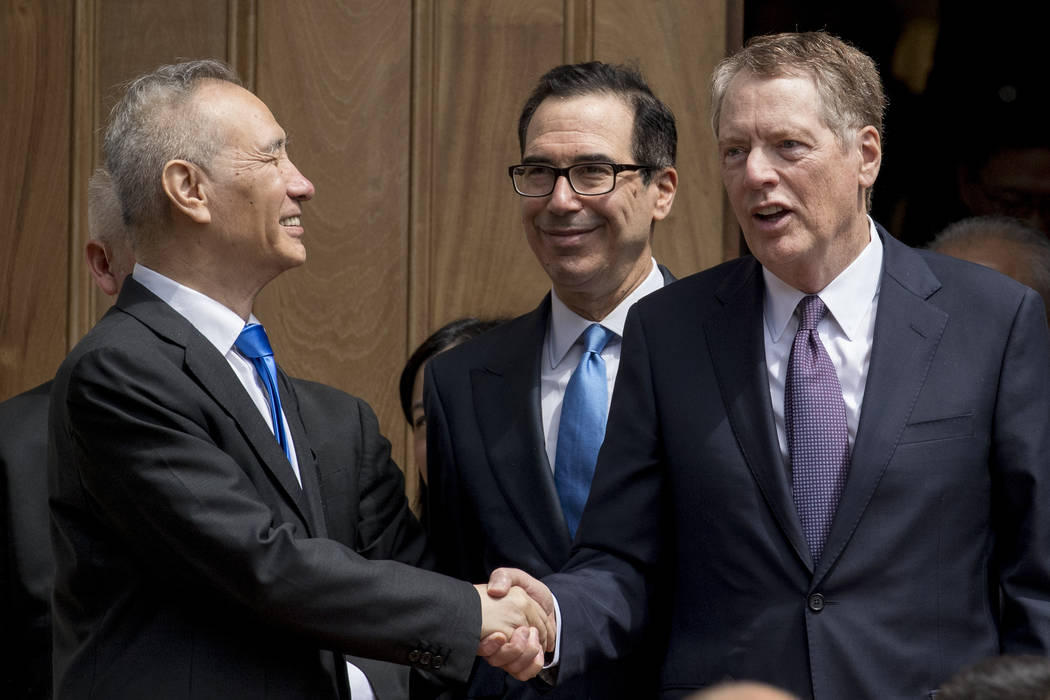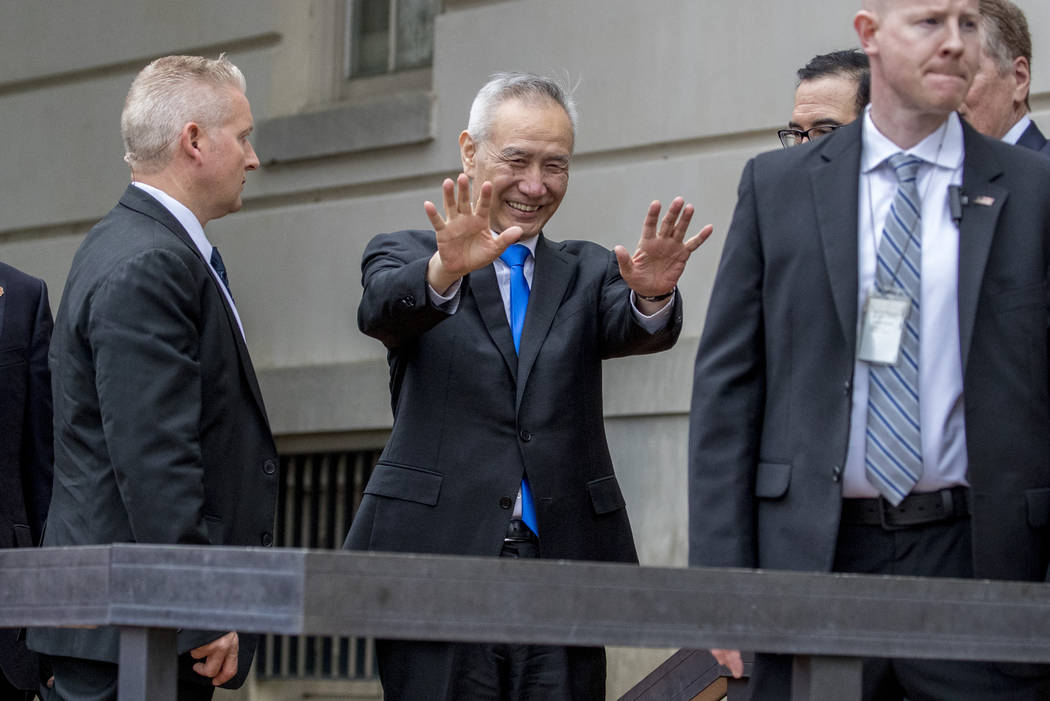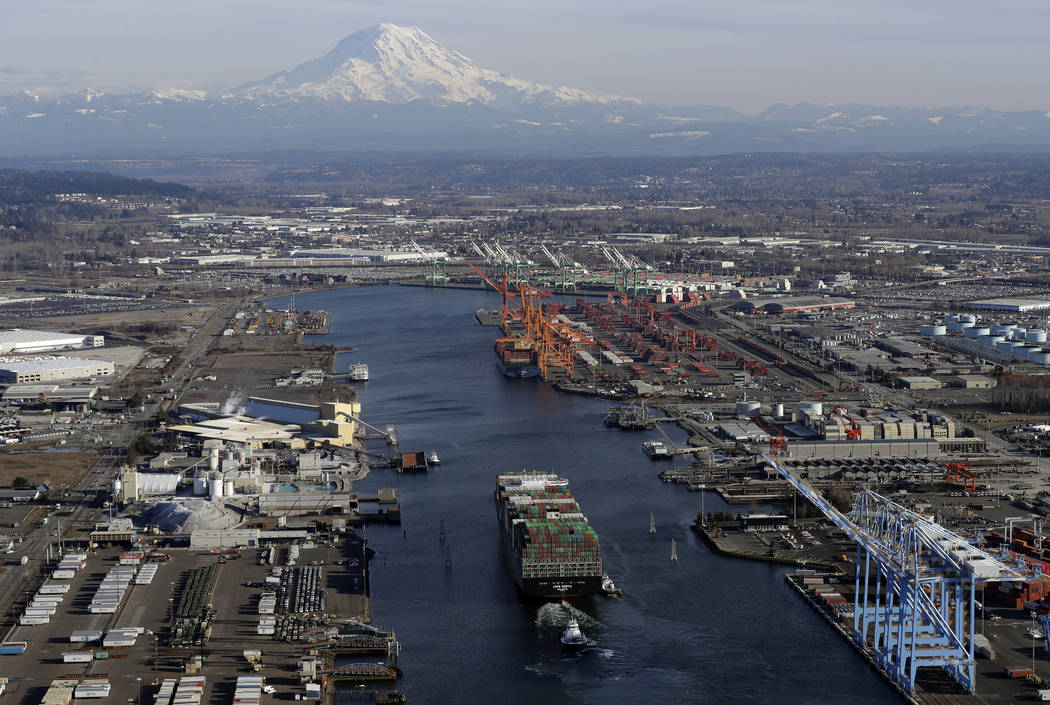US-China trade talks break up after US raises tariffs
WASHINGTON — Trade talks between the U.S. and China broke up Friday with no agreement, hours after President Donald Trump more than doubled tariffs on $200 billion in Chinese imports.
Trump asserted on Twitter that there was “no need to rush” to get a deal between the world’s two biggest economies and later added that the tariffs “may or may not be removed depending on what happens with respect to future negotiations.”
A White House official, speaking on condition of anonymity because they were not authorized to speak publicly on the matter, confirmed that the talks had concluded for the day but could not say when they would resume.
Hours earlier, the Trump administration hiked tariffs on $200 billion worth of Chinese imports to 25 percent from 10 percent, escalating tensions between Beijing and Washington. China’s Commerce Ministry vowed to impose “necessary countermeasures” but gave no details.
The tariff increase went ahead even after American and Chinese negotiators briefly met in Washington on Thursday and again on Friday, seeking to end a dispute that has disrupted billions of dollars in trade and shaken global financial markets.
On Wall Street, stocks fell initially Friday but turned positive on optimism over future talks.
Tariffs will bring in FAR MORE wealth to our Country than even a phenomenal deal of the traditional kind. Also, much easier & quicker to do. Our Farmers will do better, faster, and starving nations can now be helped. Waivers on some products will be granted, or go to new source!
— Donald J. Trump (@realDonaldTrump) May 10, 2019
Earlier, Trump asserted in a tweet that his tariffs “will bring in FAR MORE wealth to our Country than even a phenomenal deal of the traditional kind. Also, much easier & quicker to do.”
In fact, tariffs are taxes paid by U.S. importers and often passed along to consumers and companies that rely on imported components.
U.S. business groups appealed for a settlement that will resolve chronic complaints about Chinese market barriers, subsidies to state companies and a regulatory system they say is rigged against foreign companies.
The latest increase extends 25 percent duties to a total of $250 billion of Chinese imports, including $50 billion worth that were already being taxed at 25 percent. Trump has said he is planning to expand penalties to all Chinese goods shipped to the United States.
Beijing retaliated for previous tariff hikes by raising duties on $110 billion of American imports. But regulators are running out of U.S. goods for penalties due to the lopsided trade balance.
The latest U.S. increase might hit American consumers harder than earlier tariff hikes, said Jake Parker, vice president of the U.S.-China Business Council, an industry group. He said the earlier 10 percent increase was absorbed by companies and offset by a weakening of the Chinese currency’s exchange rate.
A 25 percent hike “needs to be passed on to the consumer,” Parker said. “It is just too big to dilute with those other factors.”
The higher U.S. import taxes don’t apply to Chinese goods shipped before Friday. Shipments take about three weeks to cross the Pacific Ocean by sea, giving negotiators more time to reach a settlement before importers may have to pay the increased charges.
The two countries are sparring over U.S. allegations Beijing steals technology and pressures companies to hand over trade secrets in a campaign to turn Chinese companies into world leaders in robotics, electric cars and other advanced industries.



